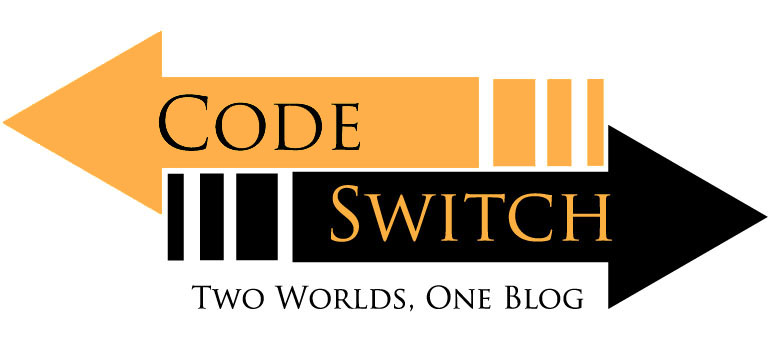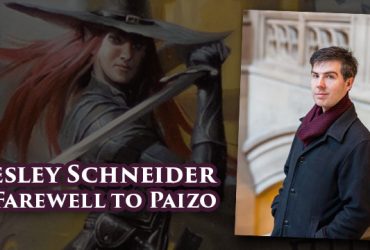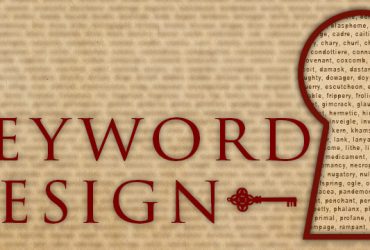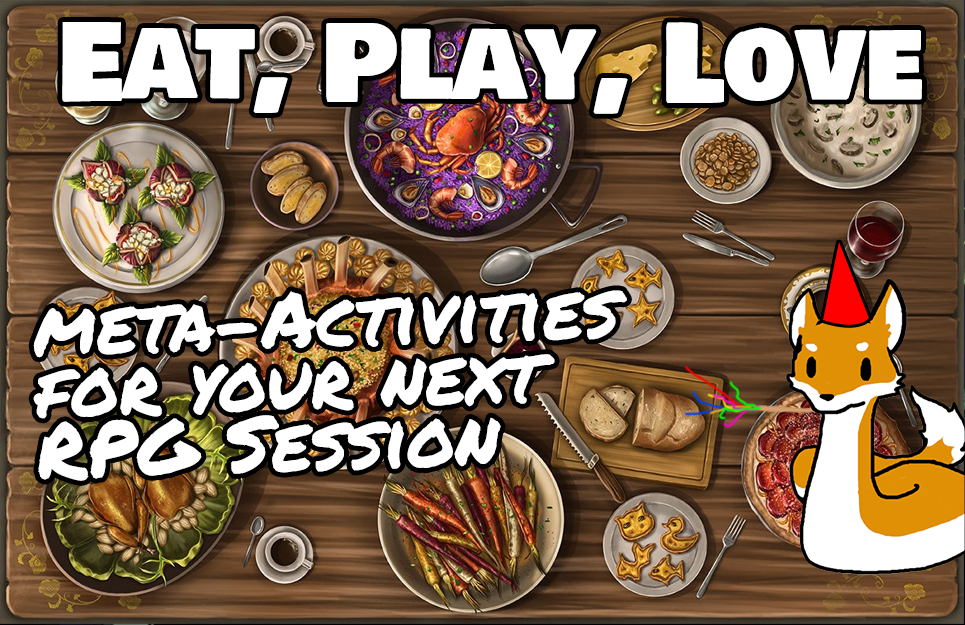I’m stepping out from Behind the Screens as a guest author filling in for James on Code/Switch. I’m here today to talk about the rather personal topic of my favorite Dragonlance character, Tanis Half-Elven, and the peculiar parallels of being an American-born Asian living in a predominantly white society.
From the racial description on the d20pfsrd:
Though usually short-lived, even by human standards, such trysts may lead to the birth of half-elves, a race descended from two cultures yet inheritor of neither. Half-elves can breed with one another, but even these “pureblood” half-elves tend to be viewed as bastards by humans and elves alike. Caught between destiny and derision, half-elves often view themselves as the middle children of the world.
Oh boy, did the notion of being caught between worlds resonate with 12 year-old Anthony when he was first getting into high fantasy. And how closely I identified with Tanis Half-Elven, that brave and somber hero, who was part of two worlds but welcome in neither and burdened with heritages that marked him forever an outsider. I’m sure that neither Margaret Weis nor Tracy Hickman were thinking of how relatable a character like Tanis would be to the only-child of Asian immigrants, but I latched onto the half-elf narrative with everything that I was and with it, came the perfect tool to help others understand. So on the rare occasions when people ask me what it was like to grow up as a child of immigrants, I tell them about half-elves.
After all, half-elves have no control over the circumstances of their birth, nor how their heritage will affect them. Often they find themselves excluded from Elven society for not being “pure” enough to live amongst the elder races. Their lives are too short, their emotions too wild, and their actions too impulsive for proper Elven standards. Being only part-elf, they are somehow lacking, always found wanting. Yet their ears and other elven features mark them as non-human. And thus, when in human society, they’re considered exotic at best and half-breeds at worst.
The Cantonese even have a pejorative for people like me. Jook-sing they call us. Its refers specifically to the stem cavity between two knots on a stick of bamboo. In this particular metaphor, the knots represent traditional Chinese and Western cultures, solid and established. The stem cavity between them, ostensibly bridges the gap between the two knots. But it is never fully a part of either knot. It’s hollow and empty.
In my personal experience, jook-sing has been a term used, more often than not, by relatives as a way to disregard my opinions or invalidate my experiences. Dismissing what I hand to say out of had because, by dint of birth, I was inherently “less” Chinese. My position in any argument was untenable because I was “thinking like a Westerner” or I was “too American” to see things clearly the way that a traditional Chinese person might.
When not being treated as a second-class member of communities that shared my racial heritage, I was being singled out as different in American society. My parents were able to scrape together enough money to allow me to attend a small private school my hometown and for the eight years I was there, I was the only Asian student enrolled.
Classmates would ask me to say things in Cantonese and Vietnamese so they could trip their way over the syllables. They would stare sometimes in wonder, other times in disgust, at the food I would bring in for lunch. And they would line up to check their math homework against mine at recess. None of this was malicious in any way shielded, as it was, by the casual innocence of childhood. But it was only later I realized how those experience would underscore that sense of not belonging.
There’s been a trend of articles circulating various messageboards and Facebook groups on the topic of the intersection between racial identities and niches hobbies. Daniel Jose Ruiz’s essay, “Dragons Are for White Kids with Money: On the Friction of Geekdom and Race” in particular has crossed my desk at least a half dozen times in the week or since it was published. In his essay, Ruiz postulates that Geekdom, as a subculture, is a socially white construct and thus separate from traditionally non-white cultures – whatever they may be. Therefore a non-white person looking to be a part of Geekdom must sacrifice a part of their racial identity in exchange for that acceptance. This, he laments, is the friction between cultures.
I don’t necessarily disagree with his point about racially coded Geekdom. His main thrust, “If geekdom was never coded as hyper-white, why then is there such a loud resistance to the inclusion of non-white, non-male, non-binary, and non-heterosexual stories and characters?” We can clearly see evidence of this (often caustic) push back with events like Gamergate, the ongoing clash over Hugo Award nominees, and even coordinated attacks on authors trying to share their experiences.
But aside from the occasional awkwardness of dealing with questions like, “So where are you from?” I haven’t experienced overmuch in the way of friction when trying to pass within Geekdom or when trying to justify my Geekery within the strictures of traditional Asian values.
For the latter, I surmise it’s because my chosen geekery – RPGs and the like – were erudite in nature. My parents, like most traditional Asians, valued education and learning. D&D was basically telling stories using math. Or, at least, that’s how I spun it. The most flak I ever got was for not choosing something more serious to read about. Why did I have to read about dragons? Why couldn’t it be doctors?
As to the former? The relatively frictionless ease with which I can pass into and throughout Geekdom? Part of it, I think is the ever-rising popularity of all things Asian within the Western-culture. Things from Anime, to martial arts, to zen philosophies are considered chic and fashionable. So as an Asian, I’ve often found an automatic inclusion within those spheres. Another part, an uglier part, forces me to confront reality that often, Asians aren’t lumped into the same category as other peoples of color. The benefits of this privilege that I’m now enjoying is a far cry from my half-elf-like origins. But like Tanis, I’m committed to doing what I can to help those I can.
The bottom line is that the intersection of racial and cultural identities is a strange place for people of color. Individuals who aren’t inherently code-matched to a particular group can face varying levels of adversity from those groups to which they hope to belong. It’s complicated. And each individual experience is only a single piece in the larger mosaic. But we’re all helping to build it. You, me, everyone. Every piece added makes the picture clearer.






